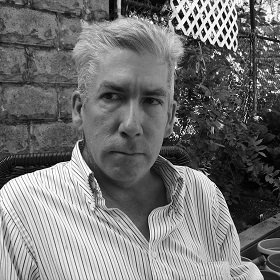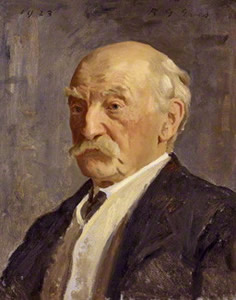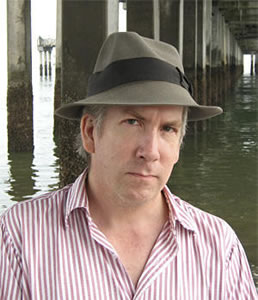De Franse schrijver Donatien Alphonse François, Markies de Sade werd geboren op 2 juni 1740 in Parijs. Zie ook alle tags voor Markies de Sade op dit blog.
Uit: The 120 Days of Sodom and Other Writings (Inleiding door Simone de Beauvoire vertaald door Austryn Wainhouse en Richard Seaver)
“Just what is his place, however? Why does he merit our inter-est? Even his admirers will readily admit that his work is, for the most part, unreadable; philosophically, it escapes banality only to founder in incoherence. As to his vices, they are not startlingly original; Sade invented nothing in this domain, and one finds in psychiatric treatises a profusion of cases at least as interesting as his. The fact is that it is neither as author nor as sexual pervert that Sade compels our attention; it is by virtue of the relationship which he created between these two aspects of himself. Sade’s aberrations begin to acquire value when, instead of enduring them as his fixed nature, he elaborates an immense system in order to justify them. Inversely, his books take hold of us as soon as we become aware that for all their repetitiousness, their plati-tudes and clumsiness, he is trying to communicate an experience whose distinguishing characteristic is, nevertheless, a tendency to first presentation, as this extract shows, Beauvoir’s argument cen-tres on two main claims. First, in ‘assuming’ his ‘aberrations’, rather than enduring them as a natural imposition, Sade made his `psycho-physical destiny’ an ethical choice. This choice is ethical because he transcends the mere fact of his psycho-physical make-up by conferring an absolute value upon the aberrations that constituted it. In an extreme form, Sade demonstrates a general truth: the subjective origin of all value. If nothing has a value in itself, but only that which we confer on it, then anything can be valued, as the case of Sade shows. He also, unusually, demon-strates what is otherwise only implicit in Beauvoir’s (and Sartre’s) existentialist account of the subjective origin of value: the possi-bility of a singular ethic, a one-man morality. Further, he represents what, for most people, is the problem with such a possibility: Sade is a monster whose personal `ethic’ abuses others. In `Must We Burn Sade?’ Beauvoir is clear that Sade’s ethic is not one to be emulated: ‘every time we side with a child whose throat has been slit by a sex maniac, we take a stand against him.’ (Must We Burn Sade?’, p.61) Nevertheless his life has, she says, `an exemplary character’ to the extent that the form (rather than content) of his ethic and its metaphysical motivation has a universal significance. This is explained in the elaboration of the second main claim from the opening pages of Beauvoir’s essay and concerns Sade’s commitment to the principle of subjectiv-ity. Sade’s merit lies `in his having proclaimed aloud what everyone admits with shame to himself(`Must We Burn Sade?’, p.63): the irrecusable fact of the `separateness’ of each individ-ual. This fact is dramatized in Sade’s `persistent singularity’: ‘he had no fellow but himself’.”

Markies De Sade (2 juni 1740 – 2 december 1814)
De Sade in het computerspel Assassin’s Creed
De Amerikaanse schrijfster Dorothy West werd geboren op 2 juni 1907 in Boston. Zie ook alle tags voor Dorothy West op dit blog.
Uit: Skippy
“Having arrived at this hasty decision to move within a matter of days, the Adamses settled down to their excellent dinner, which they all ate with relish, for each thought thatthe major problem in his life had just been solved.
Except Skippy, who, until this moment, had had no problems. He lay under the table in his accustomed place by Buzz’ feet. Usually his head was up, his ears pointing forward, his mouth ajar to release his eager panting, his tongue extended, and his expression one of sublime expectancy. But as the human voices grew impassioned, Skippy’s keen perception noted the shades of discontent expressed in each. He cocked his head and began to listen intently. …
Skippy loved the house. He had lived in it practically all his life. Actually, you might almost say it was his. For the thing was, the Adamses had bought it because of him. He had been given to Buzz as a birthday surprise when he, Skippy, was three months old. Until then he had lived in a kennel which could not be considered home life. He and Buzz had recognized each other instantly as dog lover and boy worshiper. Two days later the apartment house agent came over to register the complaint of the people downstairs, who could not accustom their ears to the overwhelming sounds of a boy and his dog. The dog, the agent explained regretfully, must go.”

Dorothy West (2 juni 1907 – 16 augustus 1998)
Cover
De Spaanse schrijver Max Aub werd geboren op 2 juni 1903 in Parijs. Zie ook alle tags voor Max Aube op dit blog.
Uit: Crimes exemplaires (Vertaald door Jean Paul Guibbert)
“– Comment peut-on m’accuser de l’avoir tué alors que j’avais oublié que mon pistolet était chargé ?
Tout le monde sait que je n’ai pas de mémoire. Alors maintenant on va dire que c’est ma faute ? Ça, c’est un comble!
.
.
Je suis instituteur. Cela fait dix ans que je suis instituteur à l’École Primaire de Tenancingo, Zac. Beaucoup d’enfants sont passés sur les bancs de mon école. Je crois que je suis un bon maître. Je le croyais jusqu’à ce qu’arrive ce Pancho Contreras. Il ne me prêtait aucune attention et n’apprenait absolument rien : parce qu’il ne voulait pas. Les punitions aussi bien morales que corporelles ne lui faisaient aucun effet. Il me regardait avec insolence. Je le suppliais. Je le collais. Il n’y eut rien à faire. Les autres enfants commencèrent à se moquer de moi. Je perdis toute autorité et le sommeil et l’appétit jusqu’à ce jour où, ne pouvant plus le supporter et pour que cela serve d’exemple, je l’ai pendu à l’arbre de la cour.
.
.
Je suis couturier. Je ne le dis pas pour me flatter, ma réputation est bien établie : je suis le meilleur couturier du pays. Cette femme tenait absolument à ce que je l’habille. Une fois arrivée chez elle, de son manteau elle se fit une veste et cela comme si c’était sa propriété absolue. A ce vêtement vert elle assortit l’écharpe orange de son ensemble gris de l’année passée et des gants couleur de rose. Subrepticement j’ai attaché son voile à la roue de la voiture. Le démarrage a fait le reste. C’est au vent seulement qu’on doit jeter la pierre.”

Max Aub (2 juni 1903 – 22 juli 1972)
Cover
De Deense schrijver Karl Adolph Gjellerup werd geboren op 2 juni 1857 in Roholte. Zie ook alle tags voor Karl Gjellerup op dit blog.
Uit: Der Pilger Kamanita (Door de schrijver zelf vertaald)
“Du tust recht, sie also zu grüßen,” fuhr mein Beschützer fort. “Denn wenn die Ganga von dem Göttersitz im nördlichen Schneegebirge kommt und gleichsam aus der Ewigkeit flutet, so kommt die Jamuna aus fernen Heldenzeiten, und ihre Fluten haben die Trümmer der Ilfenstadt gespiegelt und jene Ebene bespült, wo die Panduinge und die Kuruinge um die Herrschaft rangen, wo Karna in seinem Zelte grollte, wo Krishna selber die Rosse Arjunas lenkte–doch ich brauche dich ja nicht daran zu erinnern, da du in den alten Heldenliedern wohl bewandert bist. Oft habe ich drüben auf jener spitzen Landzunge gestanden und gesehen, wie die blauen Wogen der Jamuna neben den gelben der Ganga dahinflossen, ohne sich mit ihnen zu vermischen, so wie die Kriegerkaste neben der Brahmanenkaste unvermischt besteht. Dann kam es mir vor, als ob ich mit dem Rauschen dieser blauen Fluten auch kriegerische Klänge vernähme, Waffengetöse und Hörnerrufe, Wiehern von Rossen und Trompeten der Kampfilfen, und mein Herz schlug höher, denn auch meine Ahnen waren ja dabei gewesen und der Sand Kurukschetras hatte ihr Heldenblut getrunken.”
Voll Bewunderung blickte ich zu diesem Manne aus der Kriegerkaste empor, in dessen Familie solche Erinnerungen lebten.
Er aber faßte mich an der Hand.
“Komm, mein Sohn, und begrüße das Ziel deiner ersten Reise.”
Und er führte mich nur wenige Schritte um ein dichtes Gebüsch herum, das bis jetzt die Aussicht nach Osten verdeckt hatte.
Als diese sich nun plötzlich öffnete, stieß ich unwillkürlich einen Schrei der Bewunderung aus.
Dort–an einer Biegung der breiten Ganga–lag eine große Stadt: Kosambi.“
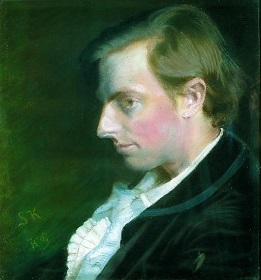
Karl Gjellerup (2 juni 1857 – 11 oktober 1919)
Portret door P.S. Krøyer, 1884
De Engelse schrijfster Barbara Pym werd geboren op 2 juni 1913 in Oswestry, Shropshire. Zie ook alle tags voor Barbara Pym op dit blog.
Uit: Excellent Women
“’Ah, you ladies! Always on the spot when there’s something happening!’ The voice belonged to Mr Mallett, one of our churchwardens, and its roguish tone made me start guiltily, almost as if I had no right to be discovered outside my own front door. New people moving in? The presence of a furniture van would seem to suggest it,’ he went on pompously. ‘I expect you know about it.’ Well, yes, one usually does,’ I said, feeling rather annoyed at his presumption. ‘It is rather difficult not to know such things.’ I suppose an unmarried woman just over thirty, who lives alone and has no apparent ties, must expect to find herself involved or interested in other people’s business, and if she is also a clergyman’s daughter then one might really say that there is no hope for her. ‘Well, well, tempus fugit, as the poet says,’ called out Mr Mallett as he hurried on. I had to agree that it did, but I dawdled long enough to see the furniture men set down a couple of chairs on the pavement, and as I walked up the stairs to my flat I heard the footsteps of a person in the empty rooms below me, pacing about on the bare boards, deciding where each piece should go. Mrs Napier, I thought, for I had noticed a letter addressed to somebody of that name, marked ‘To Await Arrival’. But now that she had materialised I felt, perversely, that I did not want to see her, so I hurried into my own rooms and began tidying out my kitchen. I met her for the first time by the dustbins, later that afternoon. The dustbins were in the basement and everybody in the house shared them. There were offices on the ground floor and above them the two flats, not properly self-contained and without every convenience. ‘I have to share a bathroom,’ I had so often murmured, almost with shame, as if I personally had been found unworthy of a bathroom of my own. I bent low over the bin and scrabbled a few tea leaves and potato peelings out of the bottom of my bucket. I was embarrassed that we should meet like this. I had meant to ask Mrs Napier to coffee one evening. It was to have been a gracious, civilised occasion, with my best coffee cups and biscuits on little silver dishes. And now here I was standing awkwardly in my oldest clothes, carrying a bucket and a wastepaper basket. Mrs Napier spoke first. ‘You must be Miss Lathbury,’ she said abruptly. ‘I’ve seen your name by one of the door-bells.”
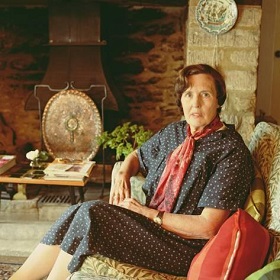
Barbara Pym (2 juni 1913 – 11 januari 1980)

